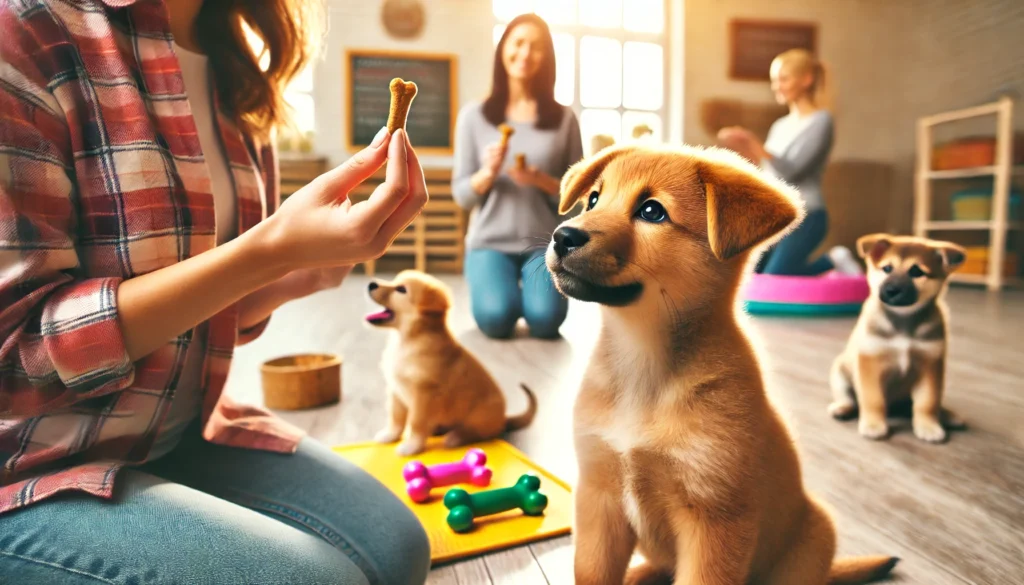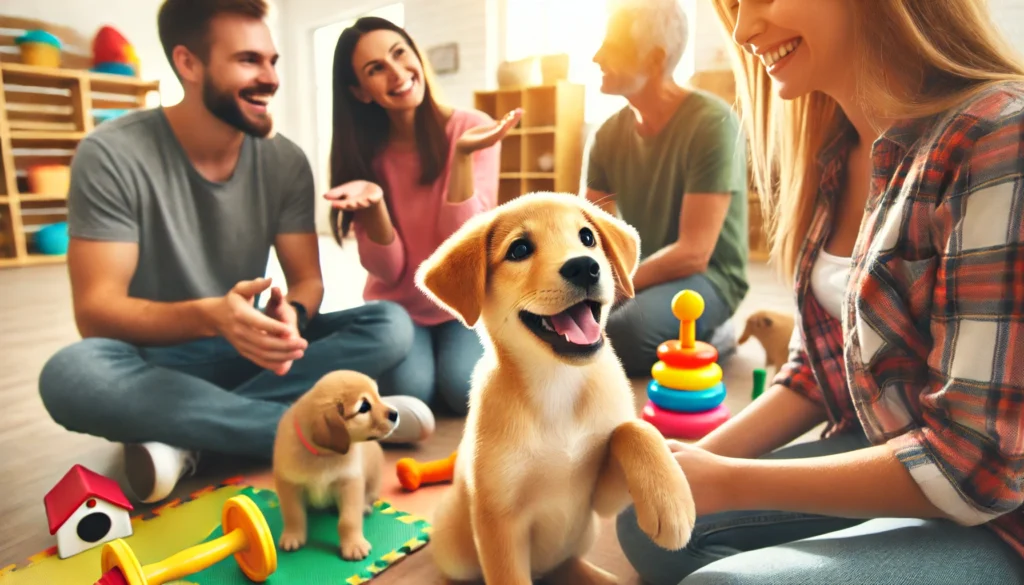What is the best age to start dog training classes
The best age to start dog training classes is usually between 7 and 16 weeks old, when puppies are most open to learning and socialization.

In this post, we’ll explore the right time to begin, what type of training is best at each stage, and how you can choose the right program for your dog.
Why Timing Matters
Dogs learn best at certain stages of development. Early training helps build good habits and avoid behavior problems. It also helps them feel more confident and comfortable in different settings.
When to Start Puppy Training
You can begin puppy training at 7–8 weeks with simple lessons like:
- Learning their name
- Potty training
- Crate time
- Meeting new people and animals
At this age, lessons should be short and reward-based.

Key Socialization Window: 8–16 Weeks
This is a great time for puppy training classes. Your dog is more open to new experiences. A class at this stage can help with:
- Leash walking
- Basic commands
- Exposure to new environments
Training for Adolescent Dogs
From 5 months to 18 months, dogs often push boundaries. You may notice:
- Pulling on the leash
- Ignoring you
- More chewing or barking
This is a good age for obedience training or a dog training boarding school, where they can get daily, structured practice.
Training Adult and Older Dogs
Dogs can learn at any age. In fact, adult dogs may focus better and respond well to consistent structure.
Common reasons for training older dogs:
- Fixing long-term behavior issues
- Adjusting to a new home
- Helping them stay active mentally and physically
How to Know Your Dog Is Ready
Your dog may be ready for school if:
- They are healthy and have their vaccines
- They can focus for short periods
- They enjoy meeting other dogs
- You’ve noticed behavior that needs work
Choosing the Right School
Picking a dog training school isn’t just about finding one close to home — it’s about making sure your dog learns in a safe, calm, and well-structured environment. Choose a place that uses reward-based training, has experienced trainers, and keeps class sizes small enough so each dog gets personal attention.
- Puppy Kindergarten: Great for very young dogs
- Group Classes: Good for basic manners and distractions
- Private Lessons: For shy, anxious, or reactive dogs
- Dog Training Boarding Schools: Useful for fast, structured progress
If you’re in Hernando, MS, or Memphis, TN, The Dog School offers training programs for puppies and adult dogs. We focus on teaching clear commands, improving behavior, and helping you and your dog work well together. Our classes are planned around your dog’s age, temperament, and pace of learning.
What to Expect from a Program
Most training programs will include:
- Daily routines and practice
- Play and social time
- Feedback for owners
- Instructions to follow at home
Ask the trainer about their methods and experience before enrolling.
Mistakes to Avoid
Try to avoid these common problems:
- Starting late without early socialization
- Being inconsistent with commands
- Using punishment instead of rewards
- Ignoring small behavior issues
- Skipping follow-up at home
Training works best when it’s repeated daily and reinforced at home.
Final Thoughts
So, what age should a dog go to training school?
You can start gentle lessons as early as 7–8 weeks, with more formal programs between 3 and 6 months. Older dogs can still benefit from training—whether it’s for behavior issues or new skills.
The right age depends on your dog’s needs, but early and consistent training is always a smart investment.
FAQs
Yes, start with name recall, potty habits, and gentle handling.
Around 4–6 months. Dogs are old enough to focus and young enough to learn fast.
They are ideal for focused, consistent progress—especially for dogs that need structure or have specific issues.
Absolutely. It might take a little longer, but with patience, they can learn well.
Most basic programs run 4–6 weeks, while advanced or boarding schools may last longer.
